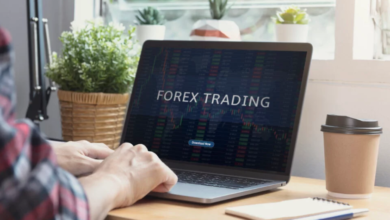Forex Trading: How Long Can a Forex Trade Stay Open?

When it comes to Forex trading, one of the most common questions traders ask is: “How long can I keep a trade open?” The short answer is—there’s no strict time limit. As long as the market is open and your broker doesn’t impose restrictions, you can technically keep a trade active indefinitely. However, that doesn’t always mean it’s a smart strategy. Managing the duration of your trades is about balancing opportunity, risk, and trading style. If you’re new to the market, opening a Forex demo account can help you explore these concepts safely before trading with real funds.
Is There a Limit to How Long You Can Keep a Trade Open?
Most reputable brokers won’t forcefully close your trade based on time. Theoretically, you could keep a position open for months or even years. However, a few conditions might indirectly affect this:
- Margin requirements: You must maintain enough margin to keep your trade active. If your equity drops due to adverse price movements, your broker could issue a margin call.
- Swap or rollover fees: When you hold positions overnight, brokers charge or pay interest depending on the currency pair’s interest rate difference. Over time, these costs can add up, especially if your trade isn’t moving in your favour.
- Market conditions: Major events, such as weekends, holidays, or unexpected volatility, can affect spreads or liquidity, making it risky to hold long-term trades.
So, while there’s no technical time limit, practical factors—like risk management and trading costs—naturally determine how long traders keep positions open.
Why Would You Keep a Trade Open for a Long Time?
In the past, traders used to hold positions for extended periods to benefit from carry trading. This strategy involves profiting from interest rate differences between two currencies. For example, if you buy a currency with a high interest rate and sell one with a low rate, you earn the “rollover” interest each day you hold the trade.
However, in today’s market, global interest rates have dropped significantly, making carry trading less appealing. While some institutional traders still use this strategy, most retail traders now prefer shorter-term trades to take advantage of quicker price movements and reduce exposure to risk.
See also: The Forex Trading Strategy That Could Make You A Millionaire
How Long Should You Hold a Trade?
The duration of your trades largely depends on your trading style and strategy. Let’s look at the common types of traders and how long they usually keep trades open:
1. Scalpers
- Time frame: Seconds to minutes
- Goal: Capture small price movements for quick profits
- Holding period: Typically less than an hour
Scalpers make multiple trades throughout the day and close them quickly to avoid overnight risks. They rely on fast decision-making and technical indicators.
2. Day Traders
- Time frame: Intraday (within one trading session)
- Goal: Profit from short-term price fluctuations
- Holding period: A few hours at most
Day traders open and close positions within the same day, ensuring they avoid swap charges and overnight uncertainty.
3. Swing Traders
- Time frame: Days to weeks, sometimes months
- Goal: Ride medium-term trends
- Holding period: Several days to a few months
Swing traders rely on both technical and fundamental analysis. They hold positions longer to benefit from sustained market trends but must be prepared to manage overnight and weekend risks.
4. Position Traders (Long-Term Investors)
- Time frame: Weeks to years
- Goal: Benefit from major fundamental shifts
- Holding period: Months to years
Position traders hold trades for the long haul, similar to investors in the stock market. They are less concerned with short-term volatility and focus on macroeconomic factors that drive currency trends.
Opportunity Cost and Capital Efficiency
Every open trade ties up a portion of your capital as margin. The longer it stays open, the less liquidity you have to pursue new opportunities. This is known as opportunity cost—the potential profits you miss by keeping funds locked in one position.
Furthermore, long-term trades are exposed to more unpredictable events like central bank decisions, geopolitical tensions, or sudden market shocks. Even if your trade is profitable initially, prolonged exposure could reverse those gains.
Efficient traders continuously evaluate whether keeping a trade open still serves their financial goals. If not, closing it and reallocating funds to a more promising setup is often the wiser move.
Practical Tips for Managing Trade Duration
- Define your exit strategy: Before entering a trade, set clear profit targets and stop-loss levels.
- Monitor rollover costs: Holding trades overnight can accumulate charges. Calculate these fees in advance.
- Use trailing stops: They allow you to protect profits while keeping the trade open during favourable moves.
- Avoid emotional attachment: Don’t hold a losing position hoping it will reverse; discipline is key to long-term success.
- Test strategies first: Use a demo account to practise long- and short-term trading styles before committing real money.
In the End
While there’s no fixed time limit on how long a Forex trade can stay open, the best duration depends on your trading style, risk appetite, and market conditions. Scalpers thrive on seconds, swing traders on weeks, and position traders on months—but every approach carries its own balance of risk and reward.
Ultimately, success in Forex isn’t about how long you hold a trade; it’s about managing that trade wisely. Knowing when to close a position is just as important as knowing when to open one. Whether you’re experimenting with short-term or long-term trades, practicing through a demo account is the best way to refine your timing, sharpen your strategy, and trade confidently in real markets.




